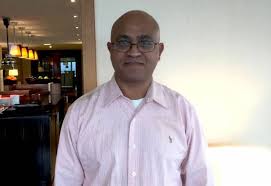More Deference on Oil and Politics
Dear Editor,
Should or will the population defer to the politicians (government) on oil and political decision making? If the politicians think so, they better think again. The people are not sleeping on oil politics. They are gradually waking up to the realities of oil and will demand a fair contract and distribution of the revenues.
They are wiser today than four years ago when they learned about the presence of oil on their shores. They know royalty is below global norm. They are dissatisfied with the oil contract. That is what they revealed in a recent survey to be released soon.
In addition, Kaieteur News has taken the lead role in calling out (exposing) the oil companies and the government (politicians) on the one-sided contract they signed.
The people are grateful for the education provided by media houses. Through the many KN exposures and investigative reports, they learn that the oil deal benefits the energy companies at the expense of the nation. The population is victim of a raw deal that gives them less than two percent royalties and in one case it seems like a negative royalty.
The masses were quiet on the oil contract until they rebelled two years ago demanding to see the contract forcing the government to disclose it to the media houses for public exposure.
Then there was a secretive bonus pact (a mere US $18M) in a hidden bank account.
For months, the government denied the existence of such a secretive account only to relent under intense pressure from the public that the funds are in an account for safe-keeping for emergencies.
Since then, the government has lost the trust of the people. But it does not mean that the population trust politicians from other parties; the people are suspicious of them also.
They have not come out clearly and stated their position on the oil contract.
Nigel Hinds is the only one who explicitly and consistently stated that the oil contract must be renegotiated for higher royalties, percentage of oil given to Guyana, and profit sharing.
But is his presidential candidate in agreement?
The population may defer to others (leadership and or party elite) on party matters and candidate selection but they are not unlikely to go down that road on oil.
A party can throw any candidate (any crapaud, as they say) on them and they will vote for it or him or her. (In this election, many voters say they will not vote because they can’t bring themselves to vote for any kind of crapaud. Politicians or leaders better rethink who they put up for Presidential and Prime Ministerial candidates — they may not get a seat or will do so poorly in the election as to become an ineffective opposition).
But the stakes are high on oil. The revenues are large – potentially tens of billions in American dollars. The population don’t trust their politicians who have taken them for a ride on oil contracts.
The population wants to be beneficiaries of that large amount of money; they know the politicians will seek self-enrichment at the expense of the population as experience revealed.
To be clear, the politicians squandered the deference they had traditionally enjoyed from the population on candidate selection and oil. There is increasing outrage.
The population is getting wiser. They know something is being hidden from them about oil. They know they are not getting a fair deal. They think the worst about our politicians- that a few are beneficiaries of corrupt underhand deals compromising the integrity of the negotiations for a fair oil contract.
Deference to party leaders is dissipating. The leadership should consult with their supporters, if not the nation at large, on oil and even on politics (selection of their candidates for the top slots. Too many traditional supporters are not deferring to the leadership; they will stay home. Internal party democracy and fair negotiations provide them the best shot to win the election or seats). Oil has political currency to win minor parties seats; they must play their hand well.
Dr. Vishnu Bisram






















